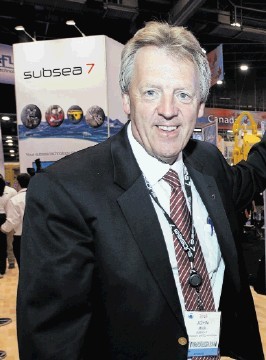
The UK’s National Subsea Research Institute, originally launched back in February 2009, is being relaunched simply as the NSRI next month after significant re-engineering.
Basically the NSRI in its original form failed to deliver on promise. It had been established under the wing of Aberdeen University on behalf of the Northern Research Partnership . . . a triumvirate between Aberdeen, Robert Gordon and Dundee Universities with major input from Subsea UK.
The first CEO, Professor Albert Rodger, trumpeted to Energy in the June 2009 edition of Energy: “It’s absolutely clear that what we’re setting up here is THE UK national institute for research in subsea. Although we have as founding members the universities of Dundee, Robert Gordon and Aberdeen, we expect to engage with all universities that wish to become involved.”
That plus an initial hit-list of key subsea companies that he wanted on board as core members to subscribe and help underpin whatever research programmes were deemed appropriate.
“There’s huge strength in universities working together in collaboration . . . almost joint venturing in a similar way to industry. Indeed what we’re creating through the institute is a joint venture between international universities and industry,” Prof Rodger also said.
However, NSRI never really got off the ground. Principally, it never attracted the corporate support, funding and commitment that had been expected.
The result was that it was effectively rendered moribund more than a year ago with frantic work going on in the background to try and rescue the initiative, which was originally the brainchild of David Pridden, who is a past CEO of Subsea UK.
Various inquiries by Energy at different times drew little response, least of all from chairman Bill Edgar.
However, at last, we can reveal that a way forward has been found. A “refreshed strategy and business model” have been constructed. And Subsea UK has played a major role in efforts to find a credible future for the organisation.
The aim is to become the “focal point for the co-ordination of research and development activities for the UK’s subsea oil and gas sector”.
As a direct link between the subsea community and academia as well as government, NSRI “will facilitate” the development of subsea technologies which enable increased recovery of hydrocarbons, prolonging the life of the UKCS and innovation which adds value to the UK’s subsea engineering base, helping maintain the country’s position as a world-leader in subsea.
Now positioned as an “initiative” rather than an “institute”, NSRI will play an influential role in making sure the UK’s subsea technology needs are understood and met within the increasingly complex and competitive technology strategy and associated funding landscape in the UK.
Subsea UK director, and NSRI steering group chairman, John Mair said that the tide had turned.
“Within this landscape, which now includes the Oil and Gas Innovation Centre and the Oil & Gas Technology Strategy Board there is a greater need for the subsea voice to be heard and for more meaningful engagement between industry and academia.
“NSRI will become the single voice on subsea technology in the country. As the go to advisory body and knowledge centre for subsea technology, it will essentially broker the development of subsea technologies, rather than seek to fund R&D activity itself.”
The oil and gas industry invests only 0.3% of sales in R&D activities in the UK. Subsea UK has consistently called for the creation of a UK subsea centre of excellence where industry, academia and government can work together to deliver R&D that will expand the UK’s subsea technology and skills base.
NSRI is an independent not for profit company. Initial funding for three years has been secured from Scottish Enterprise, Subsea UK and industry with further industry funding expected in the coming months.
A new chairman and board will be appointed shortly.
